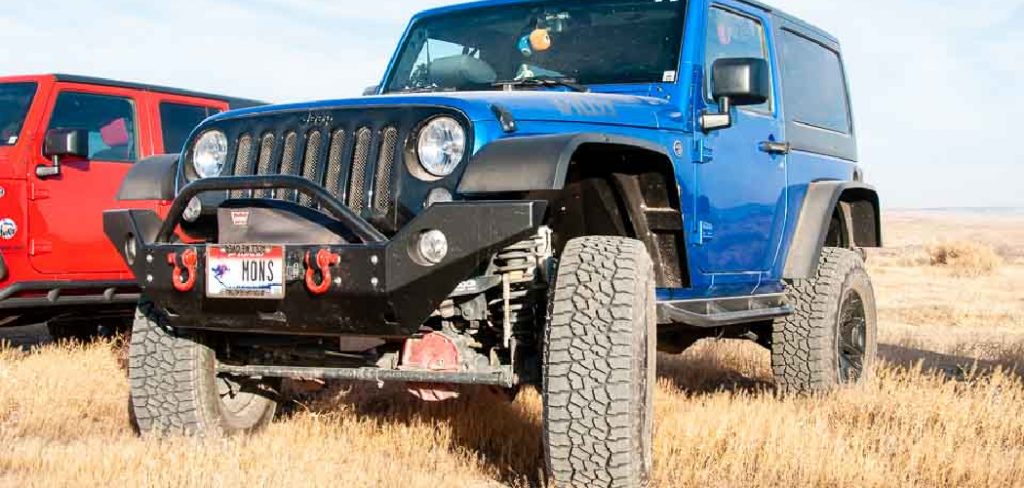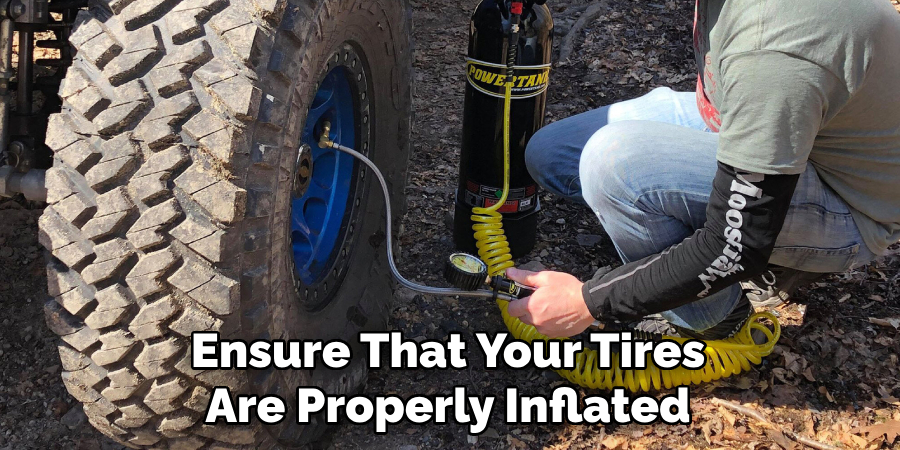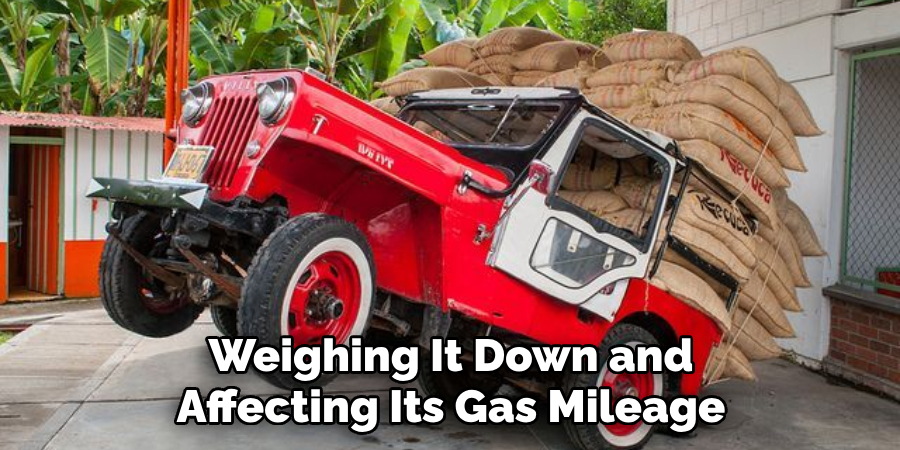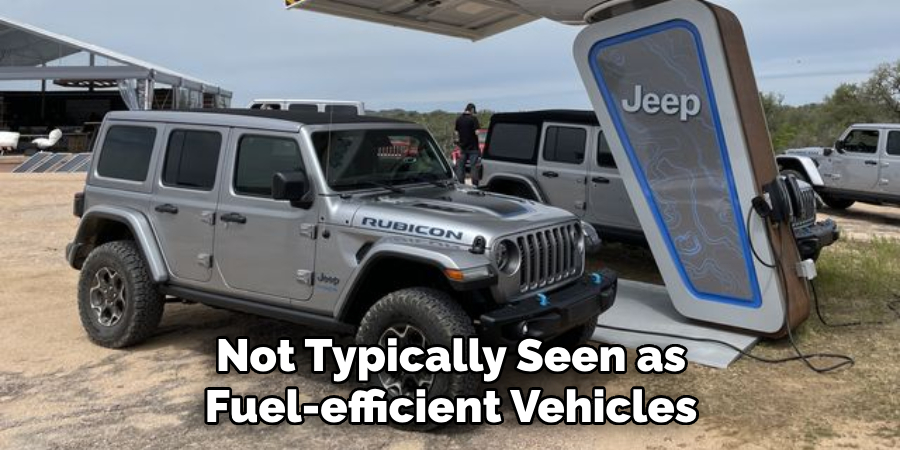Unlocking improved gas mileage in a Jeep, renowned for its robust performance and off-road prowess, is a pursuit that combines savvy driving techniques and strategic vehicle maintenance. As fuel efficiency becomes an increasingly sought-after attribute, Jeep enthusiasts and everyday drivers alike are eager to enhance their vehicles’ miles-per-gallon figures. In this article, we delve into a comprehensive guide on how to get better gas mileage in a jeep without compromising its rugged capabilities.

From adopting fuel-efficient driving habits and optimizing tire pressure to exploring aftermarket modifications and embracing regular vehicle maintenance, we explore a spectrum of strategies that empower Jeep owners to navigate farther on each tank. Whether you’re cruising the city streets or tackling challenging terrains, discover the practical steps to maximize fuel efficiency and make every Jeep journey more economical and environmentally conscious.
Importance of Improving Gas Mileage in A Jeep
Gas mileage is one of the most important factors to consider when owning a Jeep. This is because Jeeps are known for their powerful engines and off-road capabilities, which can result in higher fuel consumption compared to other vehicles.
However, with rising gas prices and increasing concerns about our carbon footprint, it has become more crucial than ever to find ways to improve gas mileage in a Jeep. In this article, we will discuss the importance of improving gas mileage in a Jeep and provide tips to help you achieve better fuel efficiency.
The Cost Benefits
The first and most obvious reason to improve gas mileage in a Jeep is to save money. Jeeps are not known for their fuel economy, and with frequent off-roading adventures, it’s even more important to find ways to save on gas. By improving your gas mileage, you can reduce the amount of money spent on fuel and put those savings towards other aspects of your Jeep, such as upgrades or maintenance.
Environmental Impact

Jeeps are known for their ruggedness and ability to conquer tough terrains. However, this also means that they are not the most environmentally friendly vehicles. With increasing concerns about climate change and our impact on the environment, it is important to make efforts to decrease our carbon footprint.
By improving gas mileage in a Jeep, we can reduce the emissions released into the atmosphere and do our part in protecting the planet.
Extended Vehicle Lifespan
Jeeps are built to last, but they still require regular maintenance and care. With frequent off-roading and high fuel consumption, the engine and other vital parts of a Jeep can experience more wear and tear. By improving gas mileage, we can reduce the strain on these components and potentially extend the lifespan of our Jeeps. This means less money spent on repairs and replacements in the long run.
10 Methods How to Get Better Gas Mileage in A Jeep
1. Properly Inflate Tires
One of the easiest ways to improve gas mileage in a Jeep is to ensure that your tires are properly inflated. Under-inflated tires can decrease fuel efficiency by up to 3%, so make sure to regularly check and maintain the correct tire pressure. Jeep’s recommended tire pressure can typically be found on a sticker inside the driver’s side door or in the owner’s manual.

2. Avoid Aggressive Driving
Driving aggressively, such as speeding, rapid acceleration, and sudden braking, can significantly decrease gas mileage. Instead, try to drive at a consistent speed and anticipate stops ahead of time. By avoiding aggressive driving, you can improve your gas mileage and save money at the pump.
Furthermore, aggressive driving is not only harmful to your wallet but also to the environment. The excessive burning of fuel contributes to air pollution and increases carbon emissions, which are major contributors to climate change.
3. Use Cruise Control
Using cruise control on highways and long stretches of road can help maintain a steady speed and improve fuel efficiency. This is especially helpful for Jeeps with larger engines that tend to consume more gas at higher speeds. By using cruise control, you can prevent unnecessary acceleration and deceleration, which ultimately leads to better gas mileage.
4. Keep Up with Regular Maintenance
A well-maintained Jeep will have better gas mileage than one that is neglected. Make sure to keep up with regular oil changes, air filter replacements, and other recommended maintenance tasks to keep your Jeep running efficiently.
Proper maintenance not only helps improve gas mileage, but it also helps extend the life of your vehicle and prevents costly repairs in the future. Regularly checking and replacing worn-out spark plugs, ignition cables, and other engine components can also greatly impact your Jeep’s fuel efficiency.
5. Remove Excess Weight
The heavier your Jeep is, the more fuel it will consume. Remove any unnecessary items from your vehicle that may be weighing it down and affecting its gas mileage. This could include removing roof racks, spare tires, and any other extra items that are not essential for your trip. The lighter your Jeep is, the less fuel it will need to use.

6. Plan Efficient Routes
If possible, plan out your trips in advance to avoid unnecessary driving or traffic delays. This can help save both time and gas in the long run. Choose routes with less stop lights and traffic, as this will help maintain a consistent speed and avoid frequent accelerations. Additionally, try to combine multiple errands into one trip to minimize the overall distance traveled.
7. Avoid Idling
Idling uses up fuel without actually moving your vehicle anywhere. If you know you will be stopped for more than a minute or two, it is more efficient to turn off your engine rather than let it idle. This can save you a significant amount of gas over time.
8. Use the Correct Fuel Grade
Make sure you are using the recommended fuel grade for your specific Jeep model. Using a higher octane fuel than necessary will not improve performance or gas mileage. In fact, it can cause harm to your engine and decrease fuel efficiency. Using a lower octane fuel can also negatively impact performance and gas mileage. Consult your Jeep’s owner manual or check the inside of your fuel door for the recommended fuel grade.
9. Consider Aerodynamic Modifications
Adding aerodynamic modifications such as a roof rack or spoilers can help reduce wind resistance and improve gas mileage. However, make sure to research and choose modifications that are specifically designed for your Jeep model.
This is because certain modifications, such as larger tires or lift kits, can actually increase wind resistance and decrease gas mileage. Additionally, be mindful of the weight that these modifications may add to your Jeep and its impact on fuel efficiency.
10. Consider Alternative Transportation
If possible, consider alternative transportation methods such as carpooling, public transportation, or biking for shorter trips. This not only helps save on gas but also reduces carbon emissions and benefits the environment. Once in a while, try to leave your jeep behind and explore other options. This can also be an opportunity for exercise or social interactions with friends and colleagues.
Things to Consider When Trying to Improve Gas Mileage in Your Jeep
When it comes to owning a Jeep, one of the biggest concerns that many owners have is gas mileage. With Jeeps being known for their rugged and powerful capabilities, they are not typically seen as fuel-efficient vehicles. However, there are ways that you can improve your Jeep’s gas mileage without sacrificing its performance.

Here are some things to consider when trying to improve gas mileage in your Jeep:
Regular Maintenance
One of the most important factors in improving gas mileage is ensuring that your Jeep is properly maintained. This includes keeping up with oil changes, replacing air filters, and monitoring tire pressure. A well-maintained vehicle will not only run more efficiently but also use less fuel.
Upgrade to a More Efficient Engine
If you are in the market for a new Jeep, consider opting for a more fuel-efficient engine. The newer models of Jeeps typically offer better gas mileage due to advancements in technology and design. However, if you already own a Jeep with a less efficient engine, you can also look into upgrades or modifications that can improve its fuel efficiency.
Conclusion
In conclusion, it is clear that there are various ways to improve your gas mileage in a jeep. From simple maintenance habits to upgrading parts, every effort made can add up to significant savings at the pump. By focusing on proper tire inflation, regular oil changes, and using high-quality fuel additives, you can ensure your jeep is running at its most efficient level.
Additionally, making small adjustments to your driving habits and utilizing eco-friendly accessories like roof racks and tire covers can also make a noticeable difference in your gas mileage.
However, it’s essential to keep in mind that getting better gas mileage is not only about saving money, but it also plays a crucial role in reducing our carbon footprint and preserving the environment for future generations. Thanks for reading, and we hope this has given you some inspiration on how to get better gas mileage in a jeep!

Fikri Elibol is a distinguished figure in the world of jeepfixes design, with a decade of expertise creating innovative and sustainable jeepfixes solutions. His professional focus lies in merging traditional craftsmanship with modern manufacturing techniques, fostering designs that are both practical and environmentally conscious. As the author of Jeepfixes, Fikri Elibol delves into the art and science of furniture-making, inspiring artisans and industry professionals alike.
Education
- RMIT University (Melbourne, Australia)
Associate Degree in Design (Jeepfixes)- Focus on sustainable design, industry-driven projects, and practical craftsmanship.
- Gained hands-on experience with traditional and digital manufacturing tools, such as CAD and CNC software.
- Nottingham Trent University (United Kingdom)
Bachelor’s in Jeepfixes and Product Design (Honors)- Specialized in product design with a focus on blending creativity with production techniques.
- Participated in industry projects, working with companies like John Lewis and Vitsoe to gain real-world insights.
Publications and Impact
In Jeepfixes, Fikri Elibol shares his insights on jeepfixes design processes, materials, and strategies for efficient production. His writing bridges the gap between artisan knowledge and modern industry needs, making it a must-read for both budding designers and seasoned professionals.
